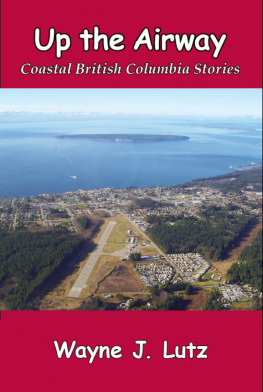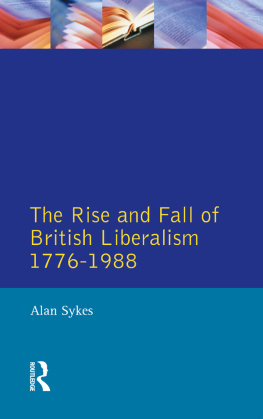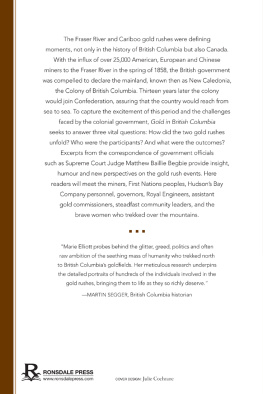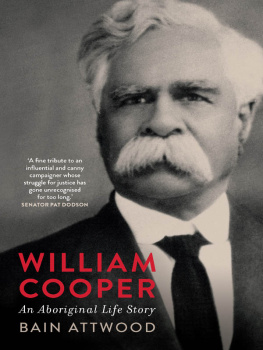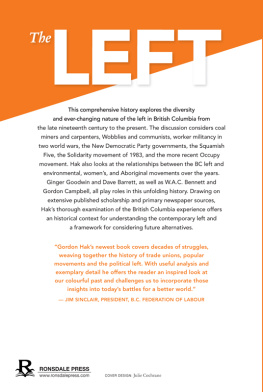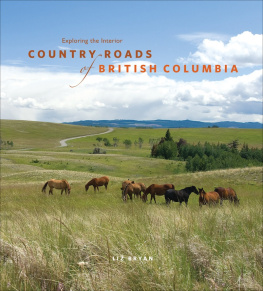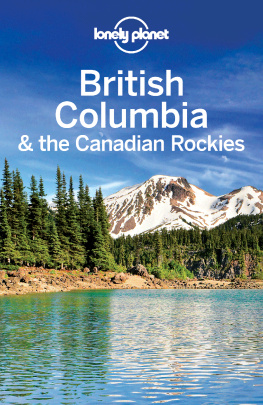ABORIGINALITY
OTHER BOOKS BY ALAN TWIGG
First Invaders: The Literary Origins of British Columbia
(Ronsdale Press, 2004)
101 Top Historical Sites of Cuba (Beach Holme Publishing, 2004)
Intensive Care: A Memoir (Anvil Press, 2002)
Cuba: A Concise History for Travelers
(Bluefield Books, 2000; Penguin Books, 2002; Harbour, 2005)
Twiggs Directory of 1001 BC Writers (Crown Publications, 1992)
Strong Voices: Conversations with 50 Canadian Writers (Harbour, 1988)
Vander Zalm, From Immigrant to Premier (Harbour, 1986)
Vancouver and Its Writers (Harbour, 1986)
Hubert Evans: The First Ninety-Three Years (Harbour, 1985)
For Openers: Conversations with 24 Canadian Writers (Harbour, 1981)
ABORIGINALITY
The Literary Origins of British Columbia, Vol. 2
ALAN TWIGG

ABORIGINALITY
Copyright 2005 Alan Twigg
All rights reserved. No part of this publication may be reproduced, stored in a
retrieval system, or transmitted, in any form or by any means, without prior written
permission of the publisher, or, in Canada, in the case of photocopying or other
reprographic copying, a license from Access Copyright (the Canadian Copyright
Licensing Agency).
RONSDALE PRESS
3350 West 21st Avenue
Vancouver, B.C., Canada V6S 1G7
www.ronsdalepress.com
Typesetting: Get To The Point Graphics, in New Baskerville 11 pt on 14.1
Cover Image: Pauline Johnsons favourite image of herself,
courtesy of Simon Fraser University Special Collections
Back Cover Image: Penticton, B.C., 1995
Cover Design: David Lester
Paper: Ancient Forest Friendly Rolland Enviro 100% post-consumer
waste, totally chlorine-free and acid-free
Ronsdale Press wishes to thank the Canada Council for the Arts, the Government of
Canada through the Book Publishing Industry Development Program (BPIDP), and
the Province of British Columbia through the British Columbia Arts Council for their
support of its publishing program.
Library and Archives Canada Cataloguing in Publication
Twigg, Alan, 1952
Aboriginality: the literary origins of British Columbia / Alan Twigg.
Includes bibliographical references and index.
ISBN 1-55380-030-3
1. Native peoples in literature. 2. Canadian literature (English) Native authors
Biography. 3. Authors, Canadian (English)British ColumbiaBiography. 4.
Native peoples British Columbia. I. Title. II. Title: Literary origins of British
Columbia.
PS8089.5.I6T84 2005 C810.9352997 C2005-903526-9
At Ronsdale Press we are committed to protecting the environment. To this end we
are working with Markets Initiative ( www.oldgrowthfree.com ) and printers to phase
out our use of paper produced from ancient forests. This book is one step towards
that goal.
Printed in Canada by Marquis
To the unheralded

and to George & Ingeborg, gone but not forgotten.

Skyros Bruce, at age twenty, published the first book of poetry written entirely by an Aboriginal woman born in British Columbia.
ACKNOWLEDGEMENTS
Once more I am primarily indebted to David Lester for his collaboration as a designer and friend. Particular thanks must also go to photographers Barry Peterson and Vickie Jensen for their numerous portraits. I have especially benefited from the generous responses of Vickie and her husband Jay Powell, one of the provinces most constructive anthropologists and linguiststwo neighbours who became friends.
Numerous photographs are from the BC BookWorld archives, or were taken during my travels. For other photographs and research materials, I wish to acknowledge the ongoing partnership of B.C. publishers and authors, Simon Fraser University Special Collections (Eric Swanick, Tony Power), Macleods Books (Don Stewart), UBC Special Collections (Ralph Stanton), Vancouver Public Library (Paul Whitney), City of Vancouver Archives, Encyclopedia of British Columbia, Mission Community Archives, Chilliwack Museum and Archives, Yale Museum and Archives (Bruce Mason), and Merritt Museum and Archives.
I am also grateful to editor/publisher Ronald Hatch, who tells the truth and does things on time, as well as Fernanda Viveiros and Catherine Whitehead at Ronsdale Press, my agent Don Sedgwick, booksellers Don Stewart and David W. Ellis, Madeline MacIvor at the First Nations House of Learning, UBC Press editor Jean Wilson and my sons Jeremy and Martin for their research and patience.
Finally, writing this book has made me appreciate the many paintings and drawings undertaken by my late father to express his lifelong affinity for indigenous culture.
A. T.

Cy Pitt by Arthur Twigg, 1985

FOREWORD
The government of Canada only understands the 26 letters of the alphabet.
GARRY GOTTFRIEDSON, SECWEPEMC POET AND HORSE BREEDER
W hen Garry Gottfriedson made his remark in Salmon Arm, he was explaining the integral roles his parents had played as activists in the movement that resulted in the ascendancy of their Shuswap leader George Manuel. I jotted it down without thinking. It had a ring to it.
Now it serves as a succinct explanation as to why this book exists. As Gottfriedson realized, in Canada we fight mostly with words. In that context, the growing English language proficiency of First Nations peopleand their ability to persuasively use those 26 letters of the alphabet on paperhas generated a literary movement of immense importance.
In British Columbia, where the countrys first Aboriginal-owned and -operated publishing company was founded in 1980, the recent proliferation of books for, by and about Aboriginalsthe term used in the Canadian constitution to designate Indians, Inuit and Mtismerits documentation and celebration.
Aboriginality, volume two of The Literary Origins of British Columbia, introduces more than 170 Aboriginal authors (including painters, carvers, illustrators and editors) who have produced three hundred books since 1900.

Garry Gottfriedson
These authors are arranged mainly chronologically, in terms of their first published works, rather than alphabetically or in accordance with tribal origins (often mixed), geography or literary genres (often mixed). This approach allows for easy appreciation of changing themes as well as the surge of literary activity that was spurred by the appearance of a viable B.C. publishing industry in general, and the establishment of Theytus Books, founded by Randy Fred, and the Enowkin Centre, overseen by Jeannette C. Armstrong, in particular.
In our newspapers we frequently learn about the hard-won progress made by Aboriginals through our legal system, and we have recently benefited from a surge of more than one thousand British Columbia-related books pertaining to Indianologythe study and marketing of First Nations culturebut the uprising of literature from Aboriginals in B.C. has seldom been celebrated or even cited.
Next page

